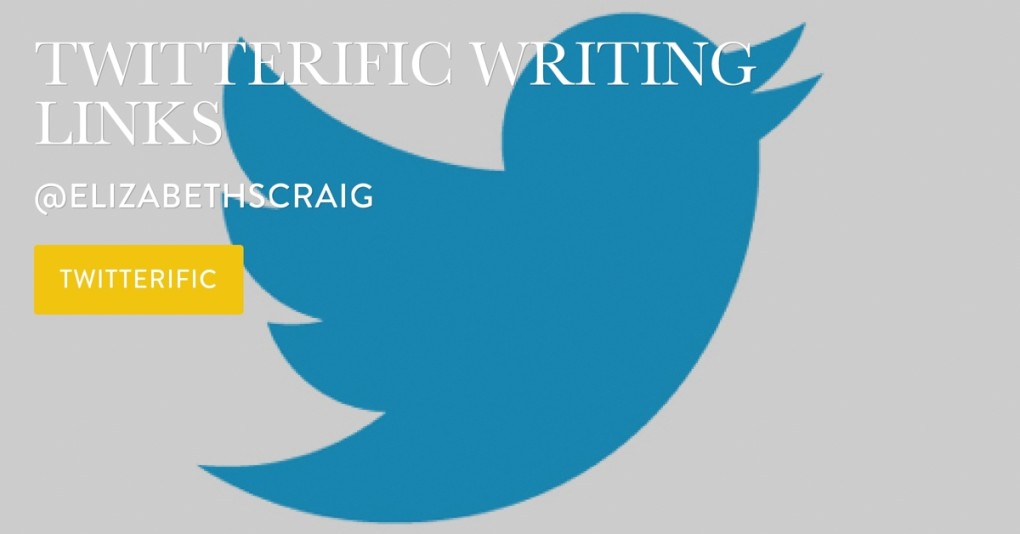by Elizabeth S. Craig, @elizabethscraig
Twitterific writing links are fed into the Writer’s Knowledge Base search engine (developed by writer and software engineer Mike Fleming) which has over 45,000 free articles on writing related topics. It’s the search engine for writers.
Have you visited the WKB lately? Check out the new redesign where you can browse by category, and sign up for free writing articles, on topics you choose, delivered to your email inbox! Sign up for the Hiveword newsletter here.
I’m taking a summer blog break for a couple of weeks. No regular blog posts from me until July 29th, when I’ll return with an especially long Twitterific. Then I’ll be back with posts on writing book endorsements, fixing a short manuscript, and using CafePress for book merchandise. Have a great couple of weeks!
- A Former Agent Turned Editor on the Types of Editing and Questions to Ask: @Kid_Lit @TheIWSG
- 4 Networking Strategies for Authors Who Hate Networking: @DeannaCabinian
- How Much Do Writers Earn? Authors and ALCS Present Talking Points to Publishers: @Porter_Anderson @pubperspectives
- How to Get Your Audience to Tell You What to Write: @ChadRAllen
- Compromise or opportunity? How does your editing garden grow? @LouiseHarnby
- Determining Your Book Publishing Goals: @JeriWB
- 6 Unexpected Activities to Inspire Your Writing: @EditingWizard
- 7 Websites to Fuel Your Creativity: by Karen Krumpak @WritersDigest
- Five Unforgettable Prisons in Science Fiction and Fantasy: @cjwhite
- The Serial Box App’s First ‘Micro Monday’ Tiny Tale Arrives Today (for iOS): @Porter_Anderson @LydiaShamah
- How to Find Time to Read During Your Busy Days: @KarenBanes
- A Reality Show for Books? Yes, Please! @librarylore @DIYMFA
- 8 Road Trip Novels for People Who Want to Travel Without Leaving the House: by Brianne Alphonso @ElectricLit




